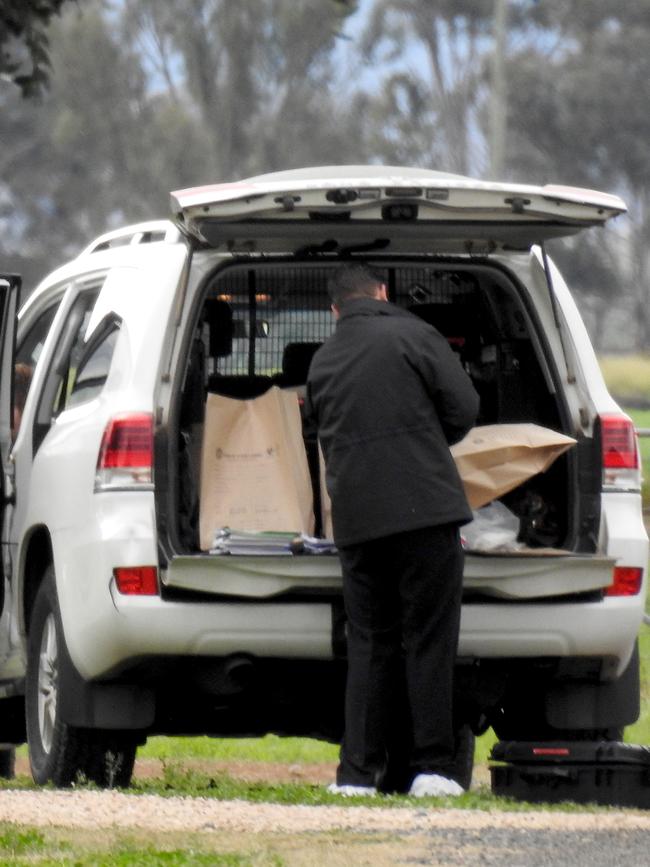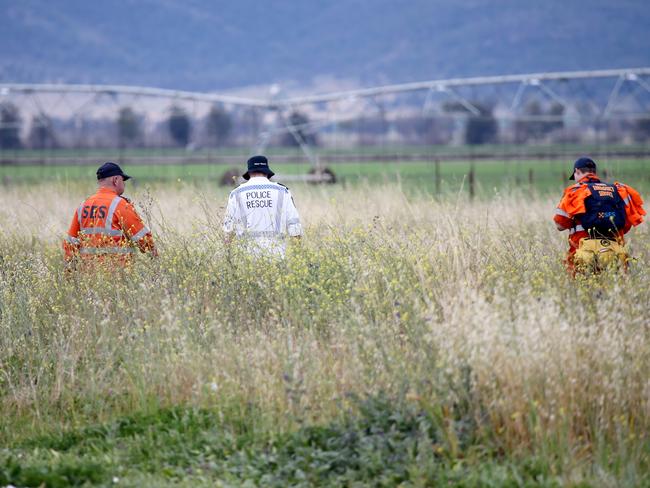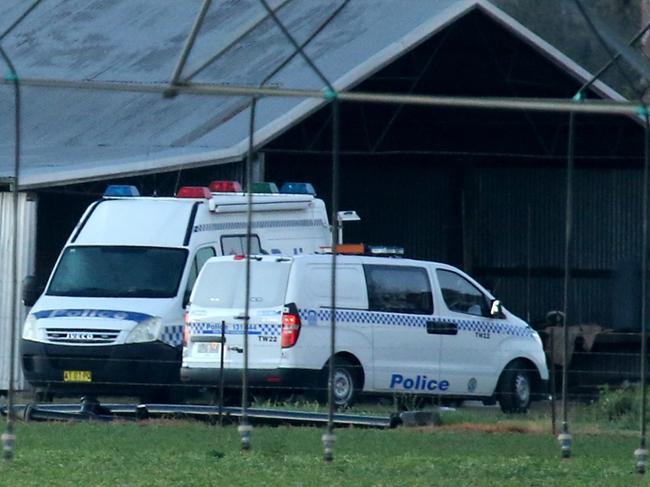Mum reveals ‘unusual behaviour’ before incident at Gunnedah farm
Detectives are trying to answer why a 14-year-old girl with no history of mental health issues allegedly murdered a young girl in a crime that has horrified Gunnedah. Despite her age, the teen can be held criminally responsible.
NSW
Don't miss out on the headlines from NSW. Followed categories will be added to My News.
A teenage girl accused of murdering a 10-year-old girl in country NSW had been engaging in unusual behaviour that raised red flags with her mother.
The 14-year-old’s mother has told police that the family was considering whether to seek professional help for her daughter.
The teenager was charged with murder, accused of killing a 10-year-old girl on a farm in Gunnedah, near Tamworth, on Wednesday morning.
Detectives are now trying to answer why a teenager, who had no history of mental health issues, allegedly committed a crime that has horrified the country town and first responders.


Through interviews with family members, a search of the home and her mobile phone, investigators have also learned the girl expressed concerning thoughts in writing.
It is understood the behaviour had been noticed in the lead-up to the alleged victim’s visit to the Gunnedah property for the school holidays.
MORE FROM AVA BENNY-MORRISON:
Boutique eastern suburbs gym project turns ugly
‘Don’t f**king burn me’: Man’s horror kidnap ordeal
The 10-year-old had travelled from her home in Orange in Central West NSW.
About 6.30am on Wednesday, the 14-year-old’s mother left the property to run an errand, while her daughter the 10-year-old girl were still asleep.
She returned half an hour later and found her daughter missing and the younger girl suffering horrific injuries, which can’t be published due to a court order.
The 14-year-old was arrested nearby and taken to Gunnedah Police Station, where she was interviewed for hours with the help of detectives with Child Abuse Squad expertise.
Charged with murder and refused bail, the girl will likely be held at the Reiby Youth Justice Centre in Airds in southwest Sydney.

Only seven per cent of NSW’s juvenile inmate population are female and they are all held at the Reiby centre.
It is extremely rare for girls as young as 14 to be charged with murder and the focus in juvenile detention will be on identifying any undiagnosed psychological conditions, rehabilitation and security.
In the juvenile justice system, children have access to psychologists, regular phone calls to family members and are paired with youth justice case workers.
“We need to be aware that the young people in detention will be released at some point in
time,” University of NSW juvenile justice expert Dr Phillipa Evans said.
“We know that if young people are supported to address some of their concerns and
problems while they are in custody, this can maximise their opportunities when they are
released into the community.
“That being said, it is a difficult balance.
“There needs to be a balance in the role of the workers — they have a security element to their role, which is very important, however they also have a helping/problem solving role.”

The age of criminal responsibility has become a legal sticking point in Australia with some advocates arguing it should be lifted from 10 to 14.
As it stands, children under the age of 10 cannot be held criminally responsible but between the ages of 10 and 14, the presumption of doli incapax applies.
That means the prosecution must not only convince a jury that a child is guilty of the offence but prove the young person knew what they were doing was wrong.
“Because the young woman from Gunnedah is over 14, there is no presumption (in law) that she is incapable of forming the intent to commit a crime,” defence lawyer Lauren MacDougall said.

Without specifically commenting on the current case, she said proceedings against youths start in the Children’s Court and eventually progress to the Supreme Court for trial or sentence.
“Youth is relevant in this regard,” Ms MacDougall said.
“If she pleads not guilty the court will have to be satisfied that she is able to ‘effectively participate’ in the proceedings.
“If she pleads guilty, when she is sentenced the court will take into account many factors including her level of maturity, impulsivity and if there is a mental illness — whether there is a clear diagnosis or whether the illness is still revealing itself.”


